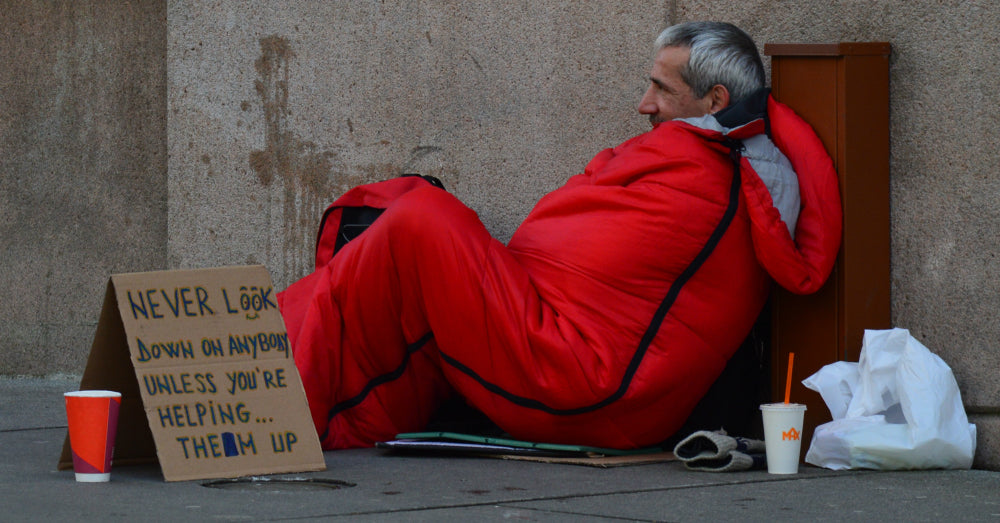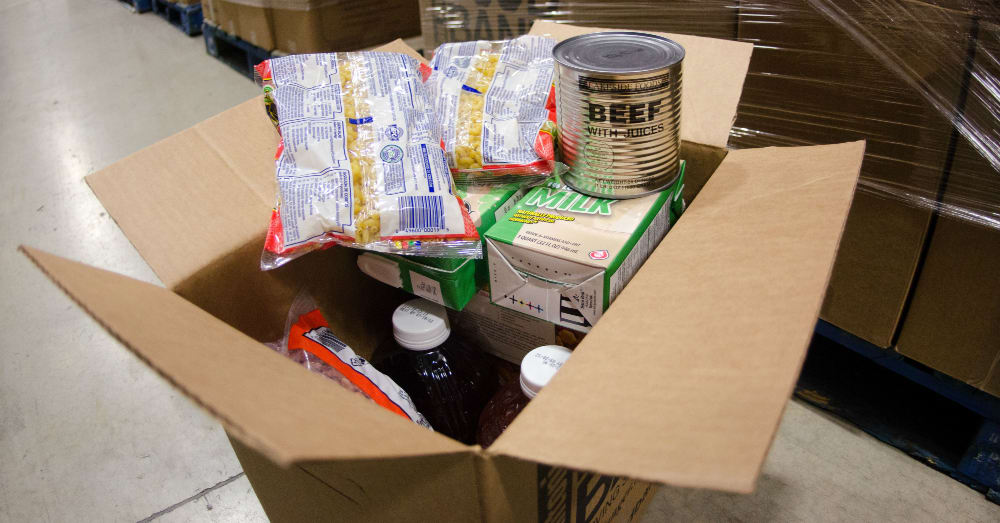Top 9 Tips for Helping the Homeless
Shopify API
Homelessness may seem like a distant problem that could never affect you personally, but everyday setbacks leave many people without sufficient income or housing. In 2016, an estimated 564,708 people in the United States were homeless on an average night, according to the National Alliance to End Homelessness. About 15 percent of those experiencing homelessness were people who were chronically displaced, and nearly 40,000 were veterans.
But those who have suffered personal tragedies can successfully transition back to a stable life with the kindness and support of others. Find out which simple acts of generosity could make a big difference in another person's life.
Volunteer at a Shelter
 Wikimedia Commons
Wikimedia CommonsDonate to Food Pantries
 Flickr/U.S. Department of Agriculture
Flickr/U.S. Department of AgricultureDonate Money to Homeless Organizations
 Flickr/401(K) 2012
Flickr/401(K) 2012Carry Extra Snacks and Supplies
 Photo: Wikimedia Commons
Photo: Wikimedia Commons
Organize a Coat Drive
 Flickr/A Healthier Michigan
Flickr/A Healthier MichiganHost a coat drive to provide comfortable and durable outerwear during cold seasons. You can also make a difference, one person at a time, by carrying extra hats, socks, and gloves to offer to people you meet. Be sure to politely ask the people you encounter if they need these items first, rather than assume.
Volunteer With Habitat for Humanity
 Flickr/Official U.S. Navy Page
Flickr/Official U.S. Navy PageCollect Recyclables
 Flickr/Steven Depolo
Flickr/Steven DepoloOffer Food for Pets
 Flickr/twitter.com/mattwi1s0n
Flickr/twitter.com/mattwi1s0nRefer People to Local Services
 Wikimedia Commons
Wikimedia CommonsIndividuals and families who suddenly find themselves without housing, food, or health care are often unaware of service organizations committed to helping people in need. Carry information from shelters, community pantries, military bases, churches, and social services, so you can tell local people exactly where to go for meals, transitional housing, medical treatment, and job training.
Your time is a precious gift, and being respectful and kind toward the homeless is one of the best ways to brighten their day. However, keep your safety in mind when engaging with strangers, and avoid approaching someone having an episode. While most homeless people mean no harm, it's smart to be cautious and alert authorities to help anyone who may be a danger to themselves or others.
For more ideas on helping the homeless, find out how one 12-year-old took charge to feed people in his community.

